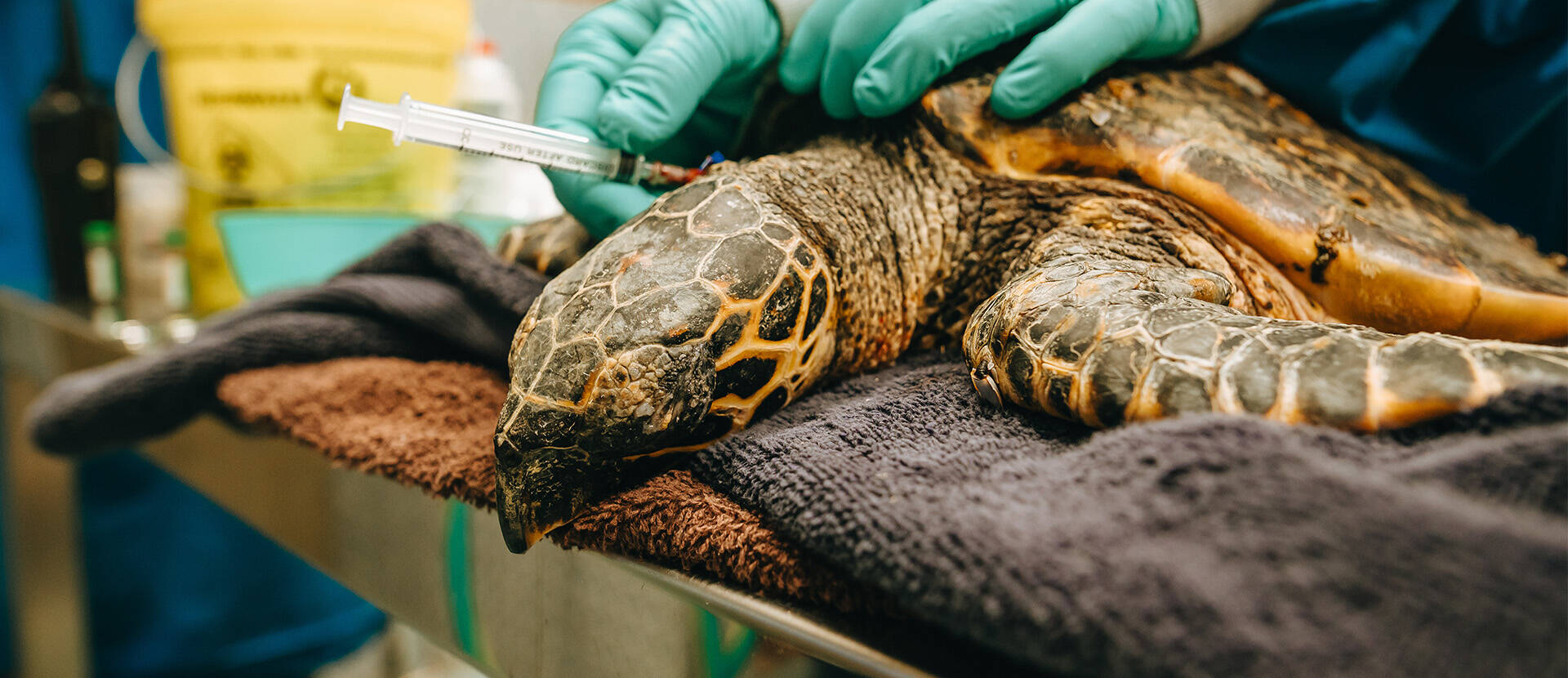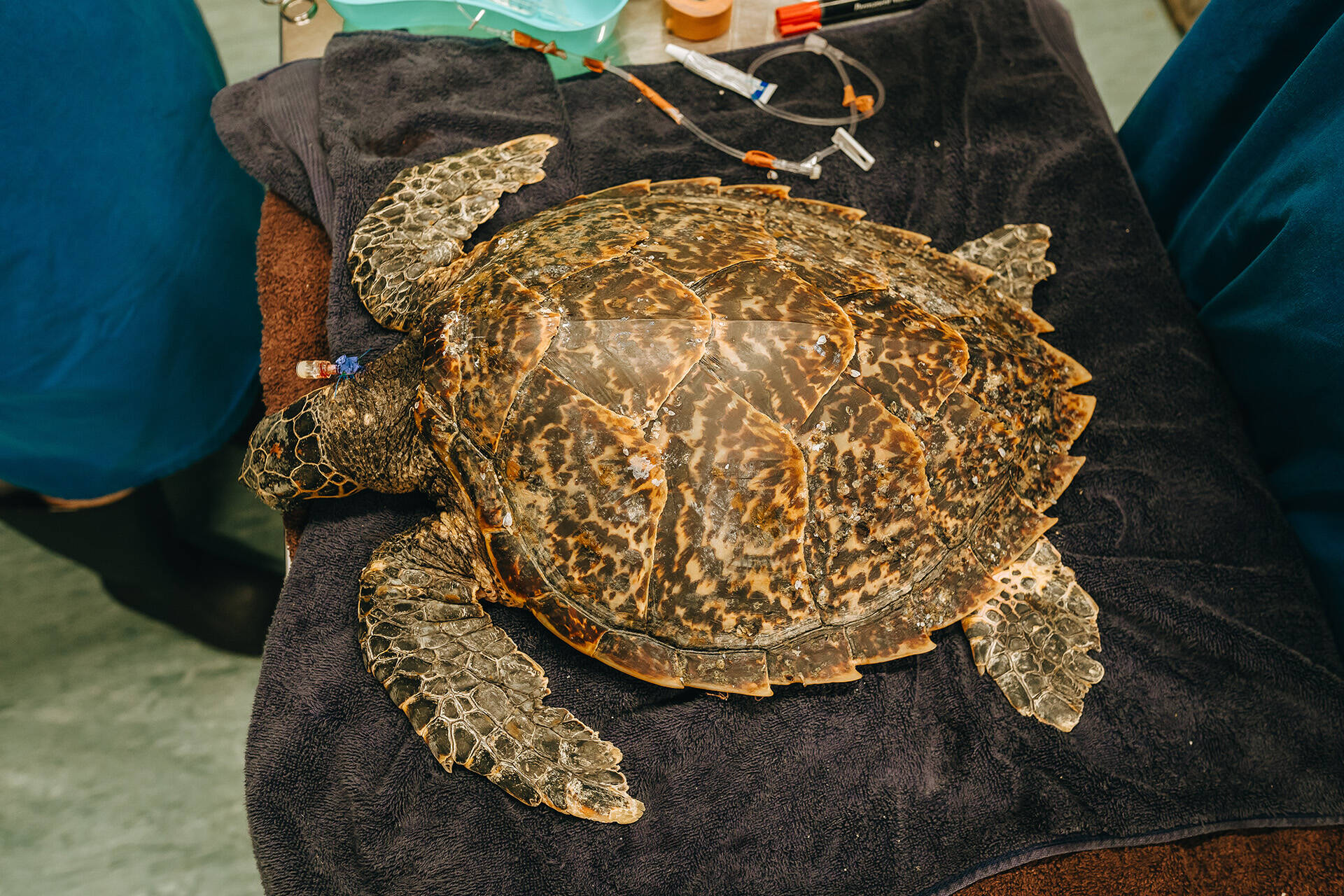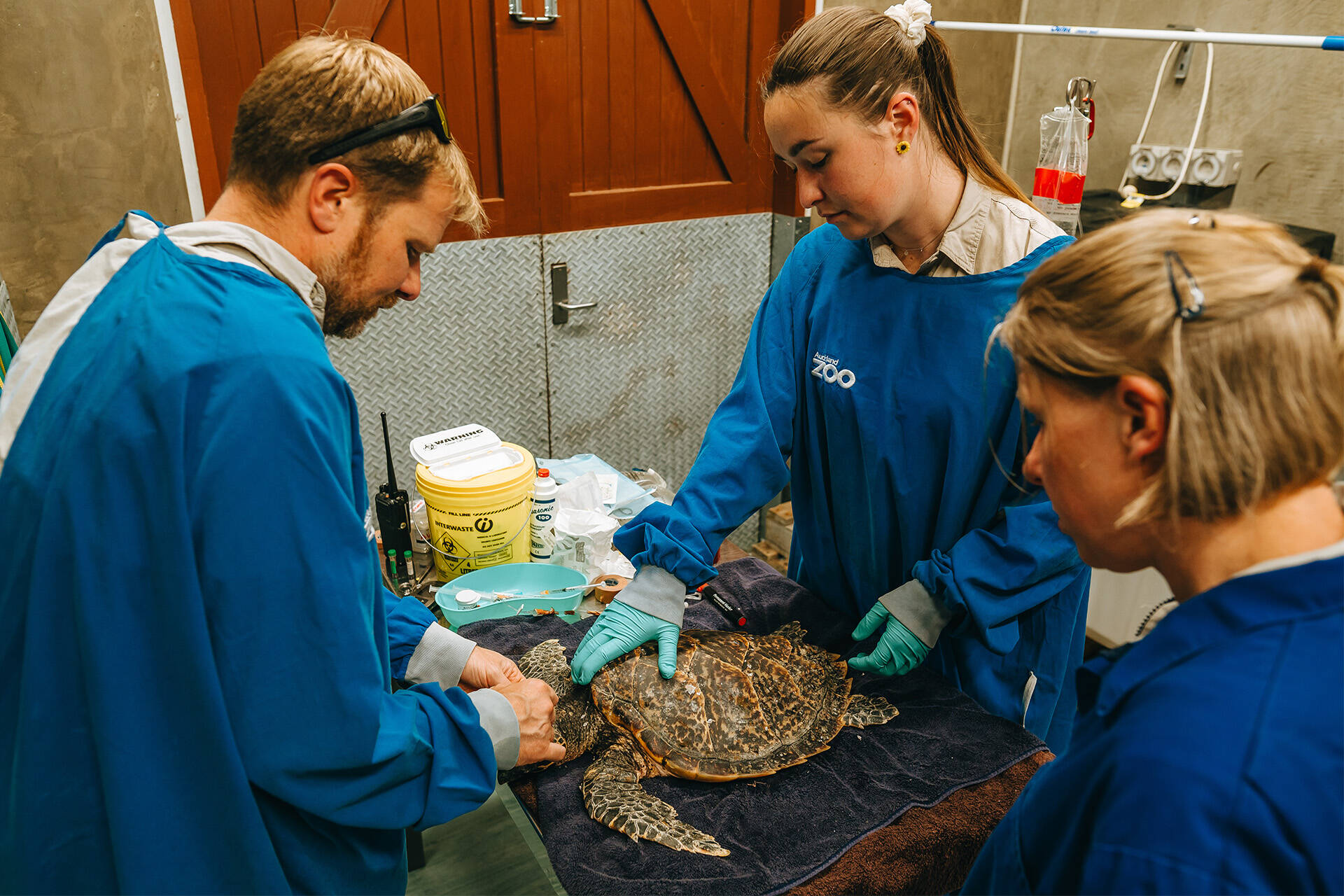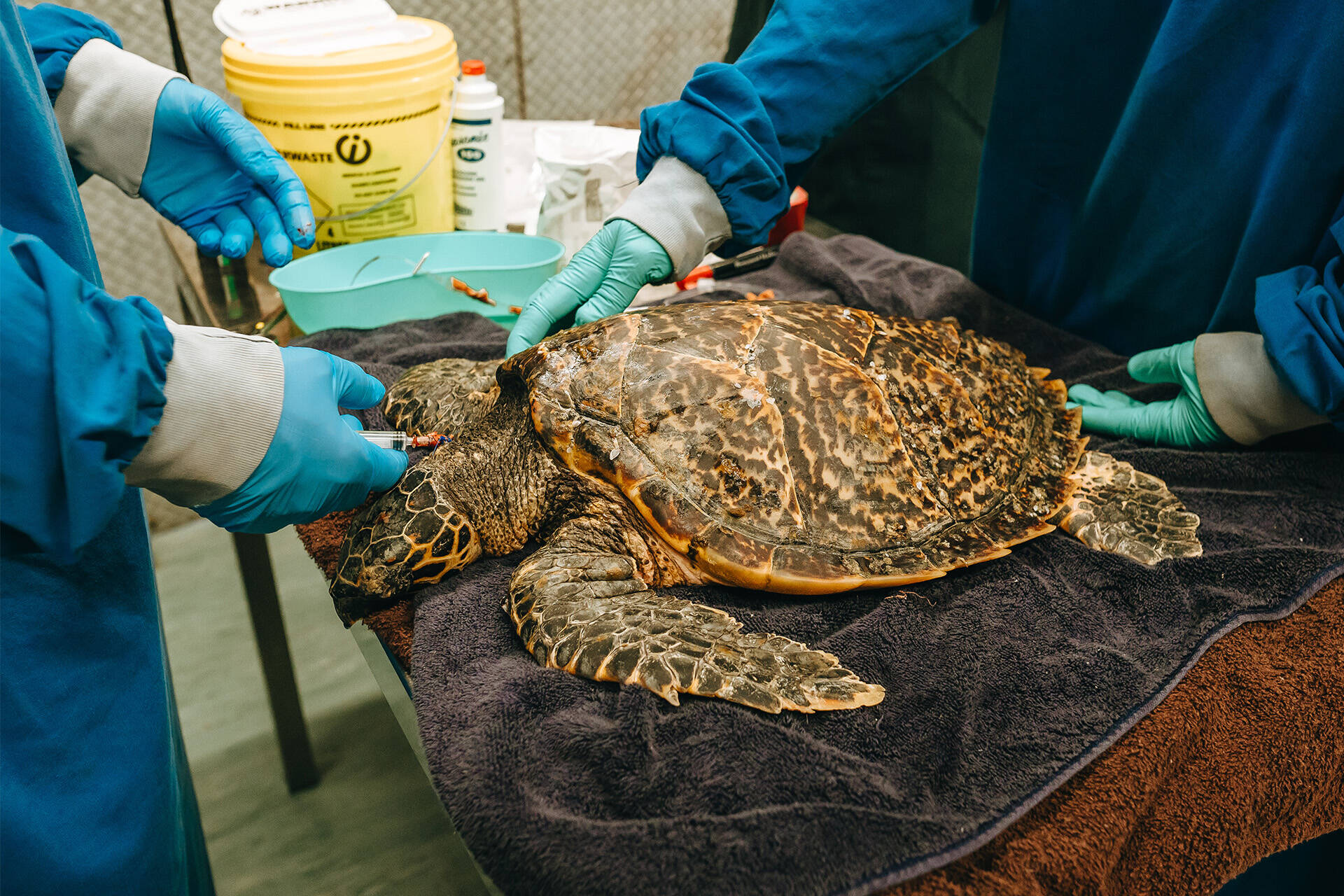In early November, a member of the public came across a sick Hawksbill turtle on Muriwai beach. Thankfully, they did the right thing by contacting the Department of Conservation (DOC) who assessed and then collected the sick turtle.
Upon arrival at Auckland Zoo, the turtle was lethargic, dehydrated, and in poor body condition. It also bore abrasions to both eyes—signs of its intense journey in the surf.
Immediate measures were taken to address the dehydration and assess the overall well-being of the turtle through blood samples and X-rays, along with the installation of an intravenous catheter for critically ill turtles requiring additional fluids and medication.
At our Zoo vet hospital, we have a dedicated room for sick sea turtles. This facility is equipped to regulate both air and tank water temperature for these marine patients. This is particularly crucial for ‘cold-stunned’ turtles, which are often hypothermic upon arrival. This controlled environment ensures a gradual and safe temperature increase over several days—an essential element in their recovery.





